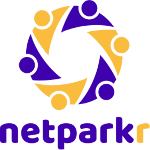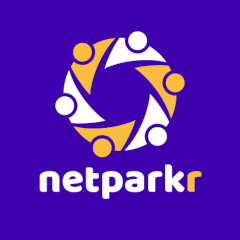Joshua launched No Code Founders, a group of entrepreneurs that launch online businesses utilizing no-code applications. NCF started out as a Slack community but has now grown to include profiles, jobs, meetups, interviews, deals, etc. They have surpassed $3,000 in MRR and are presently very close to 10,000 subscribers.
What are you currently working on and who are you?
I am the creator of No Code Founders, a group of entrepreneurs who use no-code technologies to start online businesses.
Initially a Slack group, No Code Founders has grown to include founder, startup, and tool profiles as well as jobs, interviews, meetups, deals, and other features. It has become a resource for people to learn about the no-code ecosystem and choose the best tools and approaches for their projects. Currently, I am in charge of managing the community and overseeing all elements of site growth. Although my marketing has developed naturally with very little of my work so far, I’d like to step up my efforts in the near future. PRO subscriptions, an upsell of our free memberships, are the first of our main income sources. The option is to get into commercial relationships with no-code tool vendors who charge for community promotion.
What is your background, and how did you come up with this idea?
I’ve tried MANY things that haven’t worked out throughout the years. I had to go nearly ten years without generating any money on the internet before I started my first successful business. After exceeding the failure ceiling, I gained three initiatives throughout the course of the following two years.
Before then, I had hopped from project to project, rarely succeeding but learning from each try. Over the years, I’ve run across so many mistakes that I now know exactly what NOT to do. As a result, I’ve learnt to avoid them, which has made my subsequent endeavors far more successful.
I started No Code Founders as a way to connect with others who share my interests. I had found a technology called Bubble.io and utilized it to build Remote Circle, a remote job board that We Work Remotely later bought. Through Bubble, I learned about the no-code movement and discovered there was a word for people who think like me. I had been feeling like a non-technical needle in a sea of coders before then. NCF (No Code Founders) was my idea since I wanted to meet other no-coders. It started as a Slack group, and I then blogged about it on other forums. It had 100 members after a few weeks, and it kept expanding after that.
How did you turn a concept into a finished product?
I used the community’s recommendations on what would be most helpful to them while creating the website. I gradually added new features when the site initially merely had a list of interviews. Choosing which features to build was the most challenging part. I’ve sometimes spent a lot of time creating things that weren’t particularly popular, so I think it’s critical to recognize and concentrate on the parts that are. Users can also submit a significant amount of material to the website (startups, jobs, blogs, meetups, etc.). After a while, the website had tens of thousands of dynamically produced pages, some of which required human cleanup of low-quality material. If I had set up a mechanism to handle it right away, it would have been more effective. This, in my opinion, is a crucial factor to take into account when starting a community platform.
The website was totally built on Bubble, while the newsletter and automations are handled using Mailerlite and Zapier, respectively. It’s hard to say how long it took to build because I made tweaks along the way, but I think it’s currently in the “thousands” of hours.
What marketing techniques did you use to grow your company?
I haven’t done a lot of marketing. Apart than that, it was just the first launch on Product Hunt. I do have some automatic tweets that disseminate the site’s information every day. Since the beginning, I’ve tried to put engagement before growth, and it seems that this approach produces organic growth. I could tell the idea had some traction within the first few days of starting the Slack channel since there was rapid involvement. I didn’t want the personal connections that people were making to be destroyed by a massive flood of new users. I’ve done a lot of analysis to figure out who the users are. I can improve my marketing efforts and quickly grow the community now that I have a better grasp of who the main users are.
NCF was first made money from a few months back. Since then, PRO memberships (B2C) and paid partnerships (B2B) have generated almost equal amounts of money. Since memberships are an upsell on the website, I haven’t done anything to earn those sales, which have contributed almost $20,000. The majority of B2B relationships were started by tools contacting me personally. Over 100 no-code platforms have requested compensated partnerships in the last 12 months. Additionally, I have personally contacted tools that I thought would be a good fit, and as a consequence, a number of tools have joined.
What are you doing right now? What are your long-term goals?
I’m ready to increase our membership base now that we’re close to 10,000. Although we have a big developer and marketer audience, founders have always made up the majority of our audience. We want to spread the no-code message to the upcoming crop of non-technical business owners.
The No Code Founders organization is quite simple. Since fixed yearly expenditures total less than $2,000, profit margins rise with every dollar produced.
For NCF, there are several potential futures. Although I’ve already turned down three purchase offers this year, I can see it being acquired in the future and am happy to keep running it alone. Nevertheless, I have a strong commitment to the no-code community as a whole, and I aim to keep running NCF and promoting the virtues of no-code. Regarding the exact goals for NCF, I have an idea of where I want to go in terms of users and money, but I need to focus on the community and do my best to follow their example. In order to better understand how I can make NCF a more welcoming environment for our members, I am investing more and more time in studying data from surveys and analytics. I prefer to keep my aims flexible since I believe that the members will always be the center of attention and that everything else will revolve around them.
Which lessons have you learned the most while starting No Code Founders?
Take advice from your supporters. My strongest impression is that. This is a lesson that applies primarily to community-based businesses, but I think it’s really significant. If I had to start over, I would provide a direct conduit for community feedback from the start and follow the preferences of our most devoted users. Communities differ slightly from one another, and each community needs a different strategy for growth and maintenance. It’s essential to comprehend the beast’s nature. Furthermore, it is not something that is decided by you as the founder of the organization. Entrepreneurs have a penchant for being imaginative, and we all have our own plans for the future. To form a community, though, you must repress the need to be innovative and instead create what the community wants. While building NCF, I had to remind myself of this lesson multiple times.
What equipment and sources would you recommend?
It should come as no surprise that I strongly advocate no-code technology. Their quick development and cheap operational expenses, especially for startups, make them good choices for quickly launching and proving a company concept. The majority of my projects, including nocodefounders.com, were built with Bubble.io. With the help of Bubble, you can visually program almost everything that can be done with code. I was able to construct back-end interfaces that enable me to handle all of my processes, content, and marketing automation without the need for any extra software, in addition to providing site features for users. That is remarkable.
Along with no-code hobbies, I also like to listen to the Indie Hackers podcast and read Failory interviews for inspiration.
For further information
Register at nocodefounders.com, and I’ll give you a special welcome note. You may follow me on Twitter as well.
We gather unique business case studies from all over the internet, to inspire you with a wide range of business ideas. This case study was supervised by our team and it definitely caught our interest. You can find other inspiring business stories here.







